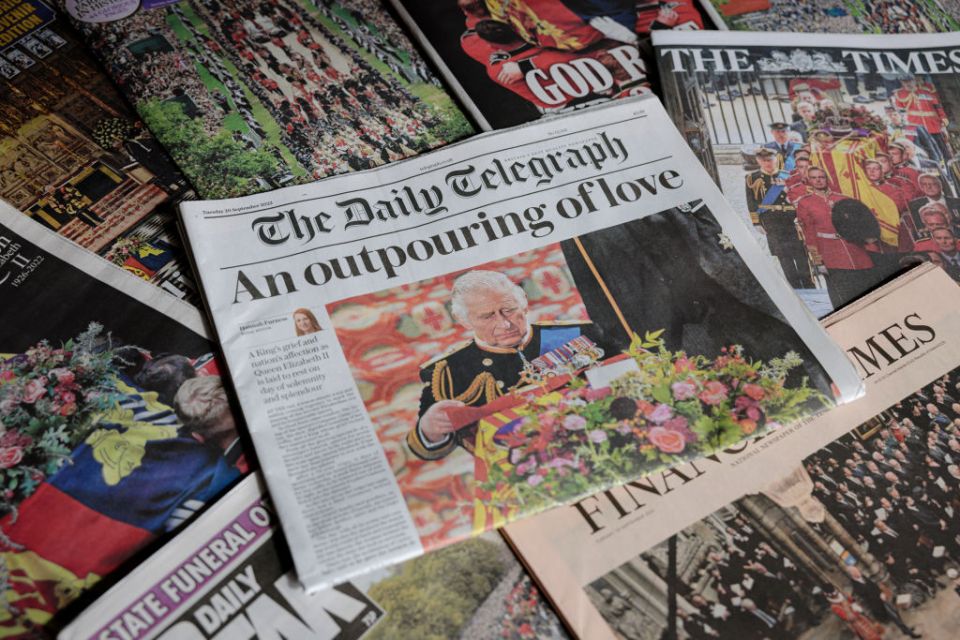Mark Kleinman: Is it a Labour of love for British business?

Mark Kleinman is Sky News’ City Editor and is the man that gets the City talking in his weekly City A.M. column. This week he tackles British business, The Daily Telegraph, and London’s equity markets.
From ‘f*** business’ to a budding love affair: it may be an arbitrary comparison between the respective attitudes of Boris Johnson’s Conservative administration and Sir Keir Starmer’s Labour opposition, but it’s one that private sector bosses are referring to with growing alacrity.
In virtually any other era, those two roles would have been reversed. Just look, though, at the sheer number of business-friendly initiatives with which Labour’s front bench now positions itself.
There’s a new infrastructure council including representatives from Fidelity, HSBC and Lloyds Banking Group, among others (although, intriguingly, not Aviva or Blackstone, both of which had been linked to it).
Starmer himself is reported to have approved the engagement of Brunswick Group, the financial public relations firm founded by Sir Alan Parker, in an attempt to cultivate a more business-friendly image for the party.
Then there’s the review of Labour’s relationship with the business community being overseen by Iain Anderson, the likeable and energetic boss of communications firm Cicero.
Labour has also re-admitted the CBI to its regular meetings with the B5 lobbying groups, a sign both of the rehabilitation of the self-styled “voice of business”, but also the party’s desire to be seen to be engaged with Britain’s main business organisations.
It doesn’t stop there. I understand that Tulip Siddiq, the shadow City minister, recently wrote to Labour MPs to inform them that she is launching a review of its financial services policy portfolio.
This, sources say, is being quietly aided in the background by personnel from the consulting firm Oliver Wyman and Global Counsel, the advisory business set up after the 2010 general election by Lord Mandelson, the former Labour business secretary, and Ben Wegg-Prosser.
This all throws the spotlight back on the government. It will certainly have focused minds in the Treasury ahead of yesterday’s autumn statement. Rishi Sunak’s administration desperately needs next week’s Global Investment Summit at Hampton Court Palace to project an air of economic self-confidence – and to generate billions of pounds in deals.
Telegraph rivals can still write the final chapter
Game-changing masterstroke or act of desperation? The Barclay family’s proposal to use RedBird IMI, an Abu Dhabi-backed vehicle, to repay a decades-old debt to Lloyds Banking Group either marks the denouement in the battle for control of The Daily Telegraph, or just another staging-post on a tumultuous path to new ownership.
It increasingly looks like the former. If Lloyds can get comfortable with the provenance of the funds in the next eight days, it will bite the Barclays’ hands off. To recoup £1.16bn from a tricky customer in messy default over a protracted period would be some achievement indeed for Charlie Nunn, the bank’s chief executive.
The appearance of Jeff Zucker, the former CNN president, as the figurehead fronting the Barclays’ deal undoubtedly adds credibility. Yet it also adds a layer of further complication: RedBird IMI, the vehicle Mr Zucker runs, is roughly 75%-funded by Abu Dhabi investors, meaning that the loans’ rapid conversion to equity will result in the Telegraph being owned by Gulf-based financiers.

Throughout the phoney war preceding the formal auction, bidders were notified that their offers were likely to encounter fewer political obstacles if they were largely financed by domestic or American backers. A number of MPs and peers – some of whom have close links to Sir Paul Marshall, the Marshall Wace co-founder who is assembling a rival bid for the Telegraph – have demanded that ministers issue a public interest intervention notice (PIIN), which would subject a transaction to a potentially lengthy government probe.
Yesterday, they got their wish from an obliging culture secretary, despite the Barclays’ argument that such a move was both unprecedented and unnecessary. It was hard to envisage a Conservative culture secretary ignoring an opportunity to scrutinise such a deal in the year before an election in which her party will need the Telegraph to help get Tory voters out in force.
The probe arising from the PIIN will not be quick, though. As smart a hand as the Barclays have played by recruiting Zucker, politics – and the Westminster connections of rival suitors – mean the next chapter of the Telegraph story may still not go to press for some time.
Taskforce’s pay agenda has presented a test for new City minister
“We will outline further suggestions that we have in relation to our governance and stewardship regimes in a separate letter in the near future.” This from the Capital Markets Industry Taskforce – the group of City grandees and market practitioners whose mission is to preserve the competitiveness of London’s equity markets – in its pre-autumn statement letter to the chancellor.
I understand that among the priorities they have been discussing in recent meetings has been a public bugbear of Julia Hoggett, CMIT’s chair: the yawning gap between chief executives’ pay in the US and UK.
The argument that this disparity has been a central driver of the UK’s recent struggle to attract companies to list, or remain listed, in London has always seemed overstated to me, but it’s become a fixation to many.
In addition to moves to equalise the comparisons used by proxy advisers to assess the fairness of executive remuneration packages, which I’ve mentioned in a previous column, I’m told that CMIT has been keen to secure government endorsement – either tacit or explicit – for this argument. That would provide an interesting test of the pro-business credentials of Bim Afolami, the new City minister.
Mark Kleinman is City Editor at Sky News and tweets at @markkleinmansky
